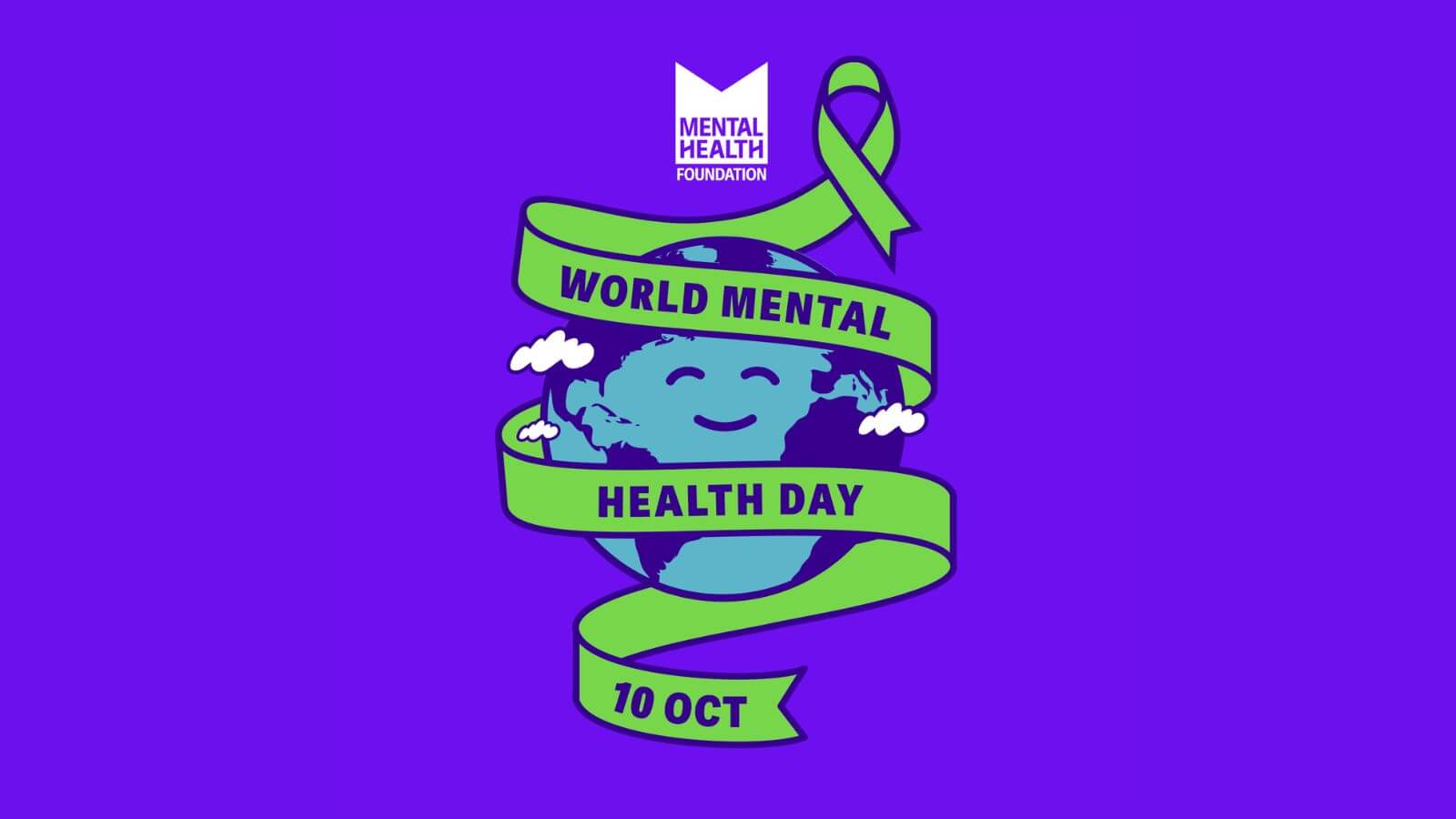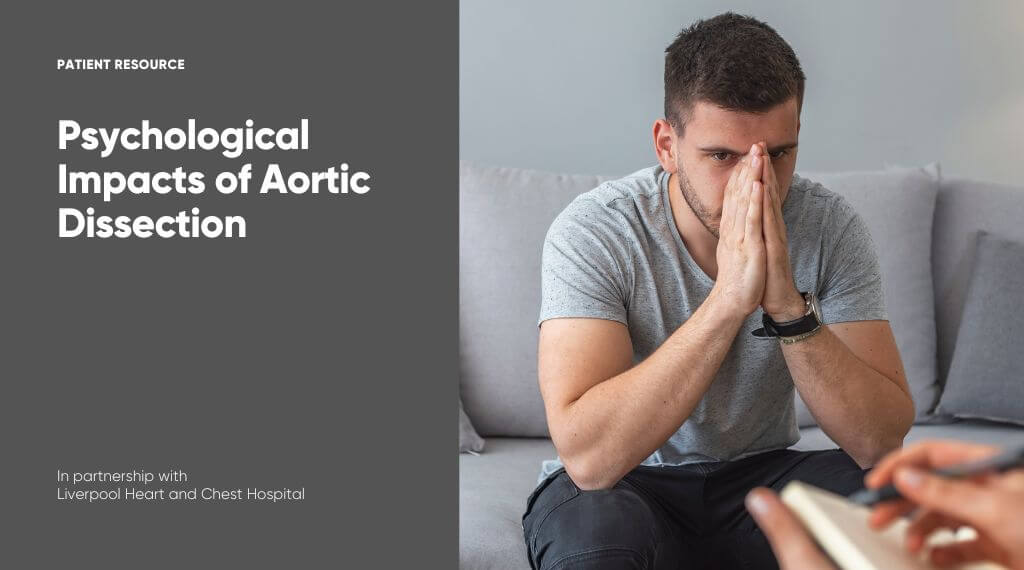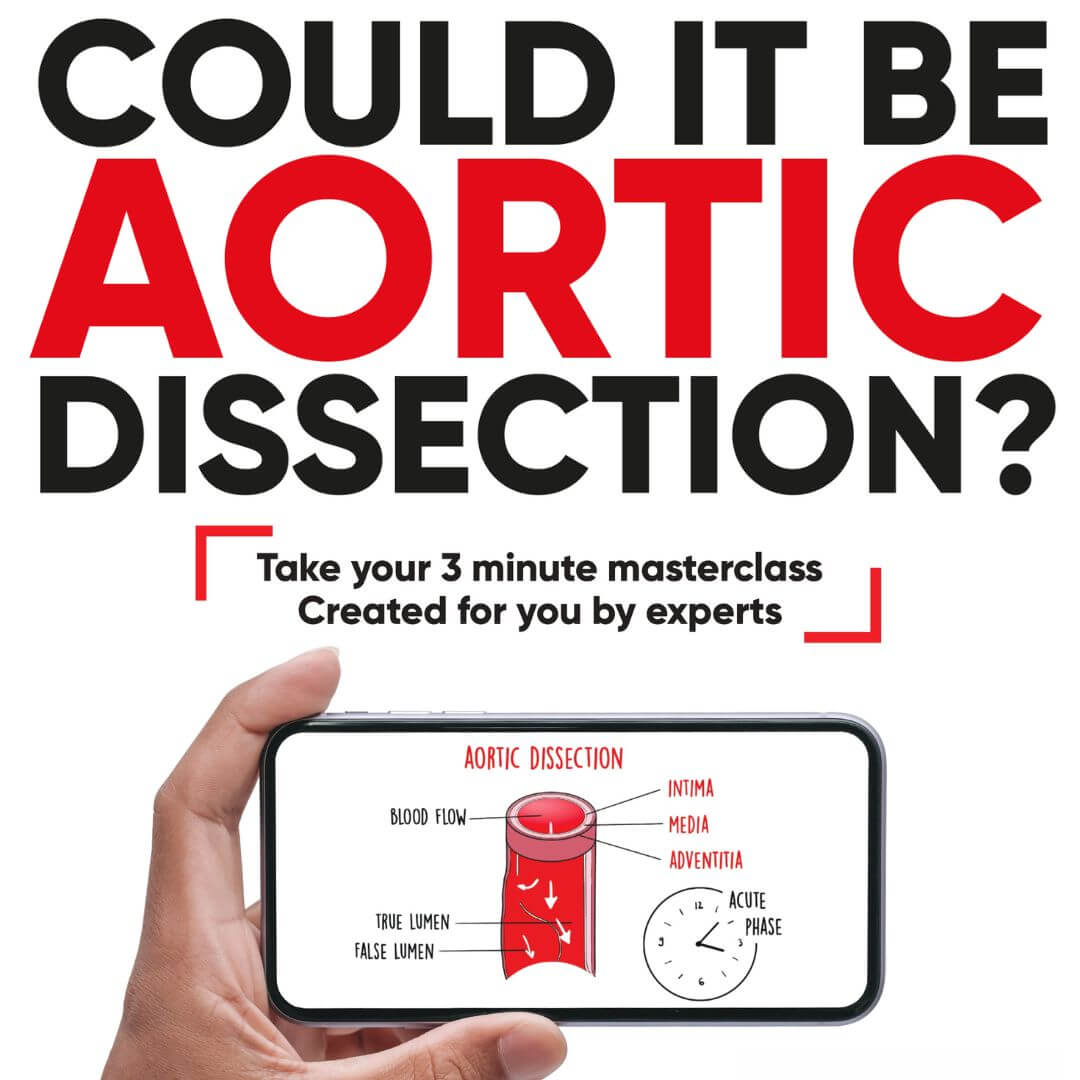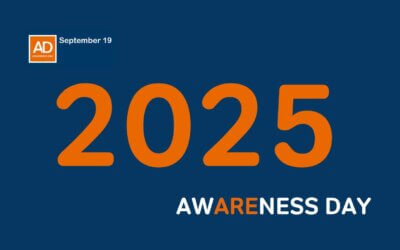When patients experience an aortic dissection or discover they have a condition placing them at risk, they often confront an overwhelming surge of physical and emotional challenges. Beyond the immediate medical crisis, the experience leaves many grappling with what is considered medical trauma – both in the short and long term.
Patients and their families may face anxiety, depression, and even symptoms of post-traumatic stress disorder (PTSD) as they come to terms with a life-altering condition. These mental health struggles often persist long after the physical wounds heal, affecting relationships, daily functioning, and overall well-being. For some, the fear of recurrence looms large, creating a sense of vulnerability that can be hard to escape. It’s crucial to acknowledge and understand these psychological impacts to provide holistic support and aid recovery.
Adjusting to Life After Aortic Dissection
The experience of an aortic dissection is a profound event, one that can upend an individual’s sense of security and health, especially for younger patients who may have never imagined they were at risk. Confronted suddenly with a severe, life-threatening condition, these patients often face the need for significant psychological and emotional adjustment. How they cope varies widely, shaped by their personalities, support systems, and circumstances.
Shifts in Perspective
For some, surviving an aortic dissection becomes a transformative experience. The awareness of having narrowly escaped a fatal outcome instils a sense of gratitude and a newfound appreciation for life. These individuals often choose to focus on what truly matters to them, becoming more intentional about their choices. They might think:
- “I have only one life; I want to prioritise my family and the experiences that matter most.”
- “This is a second chance, and I don’t want to waste it.”
Such perspectives can lead to positive life changes, encouraging them to live with more purpose and mindfulness.
Avoidance as a Coping Mechanism
On the other hand, not everyone is ready to confront the reality of their condition head-on. Some individuals find comfort in avoidance, distancing themselves emotionally from their diagnosis. This might involve carrying on with daily routines as if nothing has changed, or even avoiding discussions about their health altogether. In some cases, they may refrain from sharing their experiences with loved ones, preferring to manage the burden alone.
However, this can create tension:
- Partners and family members, wanting to provide support, may feel sidelined.
- Loved ones may find it distressing when they perceive a need for open communication but are met with silence.
This disconnect can lead to feelings of helplessness among family members who are unsure how to support their loved one through such a difficult time.
Gender and Generational Influences
Coping strategies can also differ significantly depending on gender and age:
- Older Men: Those raised in a culture that values stoicism may feel pressured to appear strong and self-reliant. They might hesitate to express vulnerability, especially around family members, believing that doing so would add to their loved ones’ burdens.
- Women and Social Support: In many cases, women may be more willing to lean on social networks for support and guidance, particularly when lifestyle changes are necessary.
Encouraging open discussions, especially for those who tend to bottle up their emotions, can be crucial. Supportive conversations not only help to process the trauma but also allow patients to access practical advice and emotional backing from those around them.
Exploring Personal Stories as a Path to Healing
The psychological impact of an aortic dissection can be profound, often leading to anxiety, depression, PTSD, and challenges in adjusting to a new way of life. Dr Mark Griffiths, Consultant Clinical Psychologist, emphasises that the experience of a dissection can be life-altering, affecting a person’s identity, their relationships, and their outlook on the future. Given the weight of these challenges, it is essential that recovery pathways offer not only medical care but also long-term psychological support.
One powerful way to begin this journey of healing is by connecting with the experiences of others who have faced similar challenges. Hearing from fellow patients and their families can offer a sense of comfort and solidarity, showing that it’s possible to find a way through these difficult emotions. Our series of candid interviews brings together voices of those who have lived through the impact of aortic dissection, whether as patients or loved ones, providing insight into their struggles and triumphs.
By watching these interviews, you may discover strategies for coping and find inspiration in the resilience of others. Listening to others who have walked this path can help you feel less alone, providing hope and practical perspectives as you navigate your own recovery. We invite you to explore these resources and to remember that reaching out for psychological support is a vital and courageous step towards healing.
Anxiety vs Depression: Two Different Realities
The emotional response to an aortic dissection is not the same for everyone. While anxiety and depression are both common, they present in distinct ways:
- Anxiety: This may manifest as constant worry about health, with patients becoming hyper-aware of physical sensations, such as palpitations or shortness of breath. Such vigilance, while understandable, can lead to avoidance behaviours – limiting activities due to fear of another episode.
- Depression: In contrast, depression is often characterised by a sense of hopelessness and withdrawal. Patients might feel resigned to their condition, believing that nothing they do can change their fate. This can lead to isolation and difficulties in maintaining daily routines or relationships.
Understanding these differences is essential for providing appropriate support, as each condition requires a tailored approach. While anxiety may need strategies to manage fears and gradually reintroduce activities, depression might call for interventions focused on rebuilding a sense of hope and connection.
By appreciating the wide range of coping mechanisms and emotional responses that aortic dissection can evoke, we can create a more compassionate and supportive environment for those affected. Supporting patients and their loved ones through these adjustments ensures they are not left alone to navigate the psychological challenges of recovery.
PTSD and Aortic Dissection
PTSD is an anxiety disorder that arises after frightening or life-threatening experiences and after such a medical emergency, it’s natural to feel distressed or anxious. However, when these feelings persist or worsen, it may be an indication of PTSD. Symptoms might include:
- Reliving the event through nightmares, flashbacks, or intrusive thoughts.
- Avoiding anything that reminds one of the experience, such as hospitals or physical exertion.
- Increased alertness or feeling ‘on edge,’ struggling with sleep or becoming easily startled.
- Emotional numbness or isolation from loved ones.
For those who’ve undergone aortic dissection surgery, the fear of recurrence and the physical trauma of the event itself can amplify these responses, affecting daily life and relationships.
Why It’s Crucial to Seek Support
PTSD, if left untreated, can have a profound impact not only on mental health but also on physical recovery. Research has shown that untreated PTSD can increase the risk of further complications. The persistent state of heightened anxiety puts strain on the heart and circulatory system, underscoring the importance of addressing these symptoms early.
If you or a loved one is experiencing these symptoms, it’s important to reach out for help. Talking to a GP, cardiac rehabilitation specialist, or a mental health professional can be the first step in managing PTSD effectively and reducing the risk of further heart-related issues. With the right support, it’s possible to heal emotionally and regain control of one’s life.

Managing Anxiety After Aortic Dissection
Anxiety is a common and natural response for those who have experienced an aortic dissection or have been diagnosed with a heart condition. The suddenness of the event and the fear of recurrence can create ongoing feelings of worry and unease. Many people find themselves feeling overwhelmed, unsure of the future, and fearful about their health. It’s crucial to understand that these emotions are a normal reaction to a life-changing event, but they should be addressed, especially if they persist and start affecting daily life.
Why Does Anxiety Occur After an Aortic Dissection?
The trauma of the experience, combined with concerns about symptoms or future complications, can be overwhelming. Some common triggers for anxiety include:
- Fear of another episode or complications from the condition.
- Worry about how well the body is healing after surgery.
- Concerns over medical devices, such as stents or grafts, and whether they will function correctly.
- The physical sensations of recovery, such as chest pain or palpitations, which can be misinterpreted as signs of another emergency.
These concerns can create a cycle where individuals become hyper-aware of their physical state, constantly monitoring for signs of trouble, which in turn heightens anxiety levels.
Recognising the Symptoms of Anxiety
Anxiety after aortic dissection can present itself in various ways, including:
- Feeling constantly on edge or alert, especially when experiencing physical symptoms like a racing heart.
- Avoiding physical activities or situations for fear they might trigger a health event.
- Struggling with sleep, either due to overthinking or fear of something happening during the night.
- Experiencing panic attacks with symptoms such as shortness of breath, shaking, or chest pain, which can be mistaken for heart issues.
It’s important to note that anxiety and panic attacks can mimic heart attack symptoms. If you experience sudden chest pain or severe discomfort, seeking emergency medical attention is crucial to rule out a cardiac event.
Strategies for Managing Anxiety
Finding effective ways to manage anxiety is essential for overall recovery and well-being. Here are some practical strategies that may help:
- Exercise Mindfully: Gentle physical activity, like walking, stretching, or gardening, can boost mood and reduce anxiety levels. Always consult your GP before starting any new exercise routine.
- Practice Relaxation Techniques: Breathing exercises can be particularly effective. Try slow, deep breathing—inhale through your nose for a count of five, and exhale through your mouth for the same duration. This technique can help calm the nervous system during moments of heightened anxiety.
- Connect With Loved Ones: Talking to friends or family members about how you feel can provide relief and perspective. Even if in-person meetings aren’t possible, phone or video calls can offer meaningful support.
Seeking Support
If anxiety continues to impact your daily life, it’s important to speak with your GP or aortic care team. Professional support, including therapy or medication, can be highly effective in managing anxiety symptoms. Additionally, online support groups and services are available, providing spaces for those with similar experiences to connect and share coping strategies.
Addressing anxiety is an essential part of recovery, and with the right support and tools, individuals can regain a sense of control and improve their quality of life.
A Holistic Approach to Recovery
The journey through and beyond an aortic dissection is both physically and emotionally demanding. While the medical aspects of care are critical, it is equally important to acknowledge and address the profound psychological impacts that accompany this life-changing event. Anxiety, depression, PTSD, and the complexities of psychological adjustment are all real and common experiences for patients and their loved ones.
By understanding these challenges and providing avenues for support – through cardiac rehabilitation, therapy, and connection with others who share similar stories – we can create a more compassionate and effective recovery pathway. Everyone’s experience is unique, and the process of rebuilding one’s life after an aortic dissection takes time, patience, and the right resources.
The stories shared by those who have walked this road before can offer vital advice, comfort, and a reminder that it’s possible to regain control, find hope, and build a fulfilling life after dissection. As the aortic dissection community continues to grow and evolve, the importance of holistic, long-term care cannot be overstated.
With ongoing efforts, support networks, and further research, we move closer to a future where every individual affected by aortic dissection feels fully supported – body, mind, and spirit – on their road to recovery.





